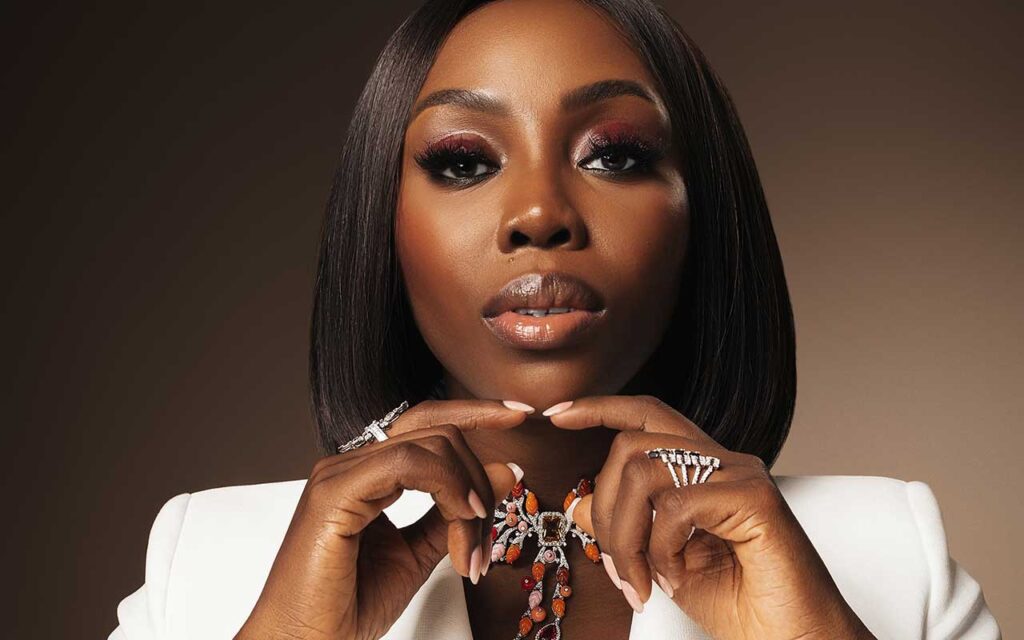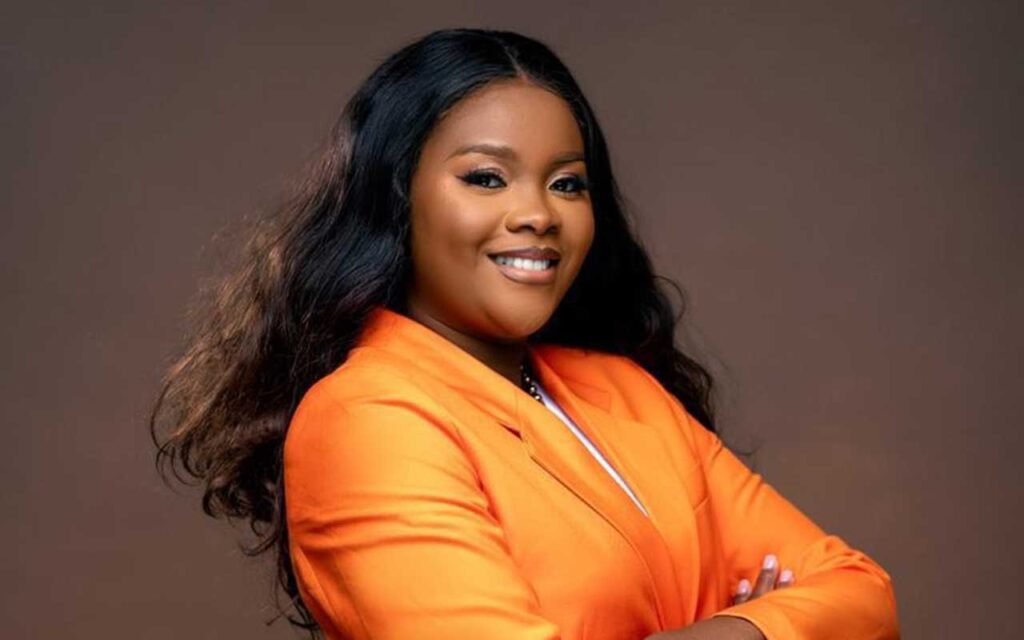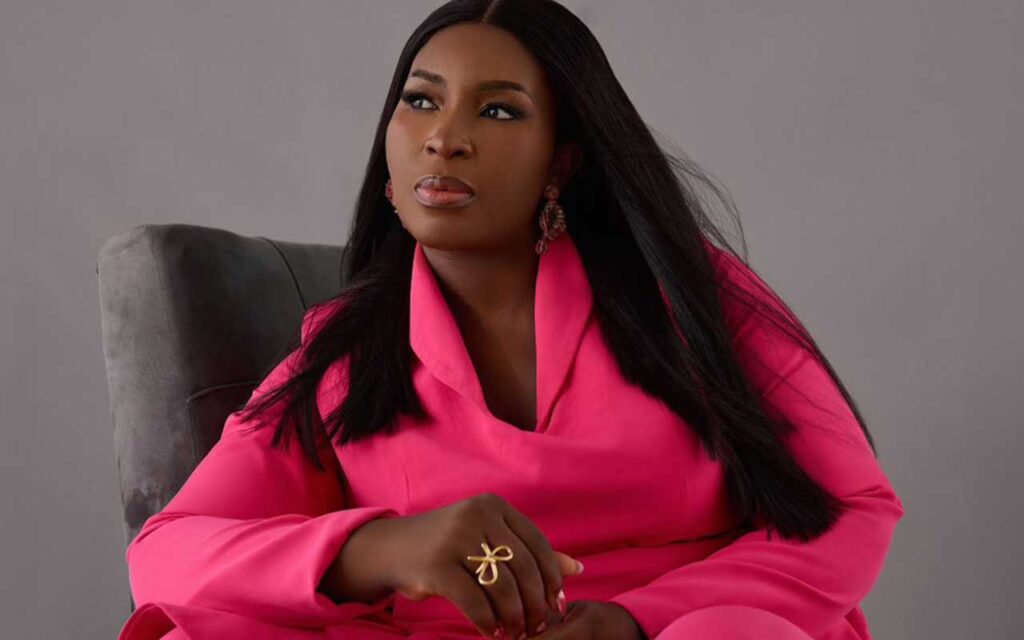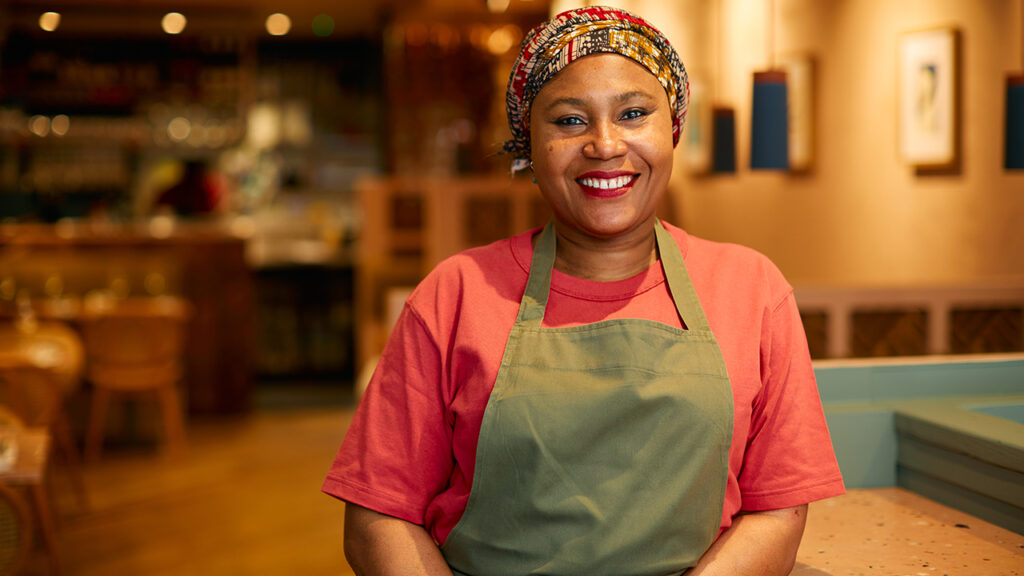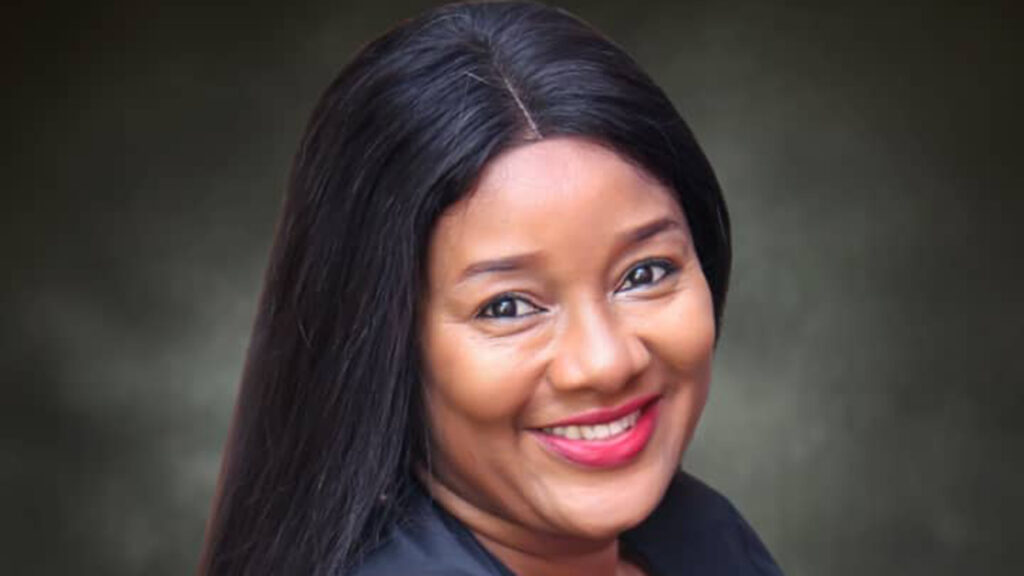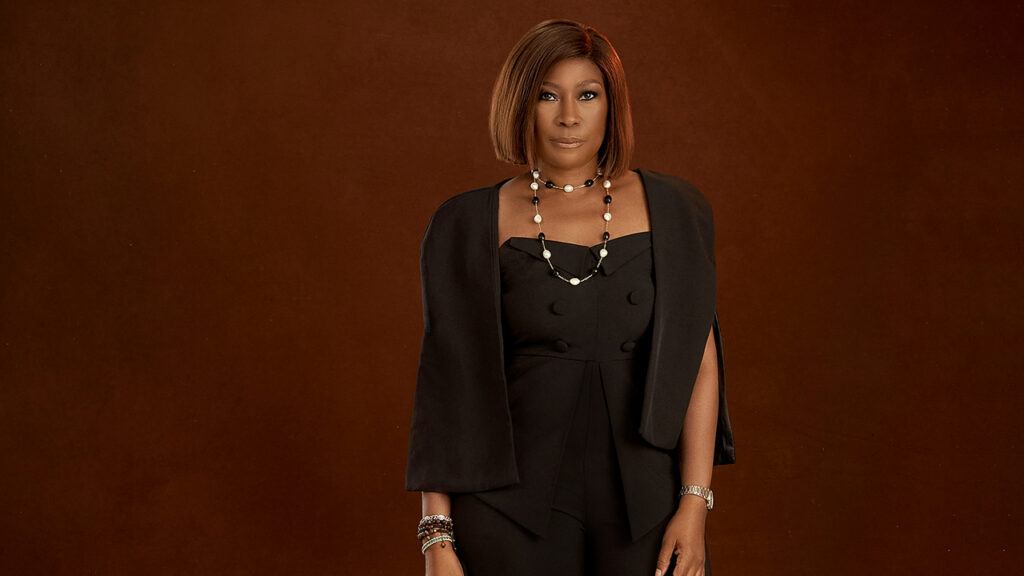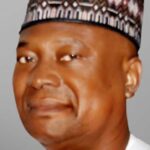
Foluke Oyeleye is an experienced Business Manager with over 25 years of work experience spanning the Telecoms, Financial, FMCG and Oil/Gas sectors. She currently serves as a non-executive director on the boards of NGX Regulation Limited and First Registrars and Investor Services Limited and works as a Director at Honeywell Group.
An Associate of the Chartered Institute of Stockbrokers and a member of the Institute of Directors (IoD) Nigeria and the Institute of Directors (IoD), UK, Foluke holds a Bachelor of Arts degree with Honours in Combined Social Sciences from St Mary’s College, University of Durham, UK (1995) and a Master’s in Business Administration (MBA) from Harvard Business School, USA, (2006). In her spare time, she loves reading, researching and writing. A published author, she also runs a mentorship programme for young people.
Foluke’s love for writing began at an early age and her first published work is a Harvard Business School case titled Chief Timothy Adeola Odutola and Nigeria’s Manufacturing Sector. A lover and believer in Nigeria, her life goal is to make a positive impact by spotlighting all the good in the country. In 2020, she set up a publishing company, Tani Series Limited and began writing books to celebrate notable Nigerians and their wonderful achievements. Through Tani Series, she shares creative stories to inspire children and inquisitive adults.
In this interview with TOBI AWODIPE, she talks about steadying SMEs as the country experiences economic downturn, what women can do to thrive in businesses, authoring/publishing her books and telling women stories, changes she would like to see impacted in women’s lives amongst other issues.
Take us a bit through your growing up years?
I grew up in Ibadan, Nigeria, until I was well into my teens. I attended International School, Ibadan for secondary school. My family is a close-knit family of seven children, and from an early age, we were instilled with strong values and work ethics. Besides the formal education I got in school, my parents made sure I had access to books from around the world.
From a young age, I remember sitting on the balcony of our 2-bedroom home and reading till dusk. I read the African Writers Series, PaceSetters, Enid Blyton and the Ladybird series. After ISI, I briefly attended the University of Ibadan before heading to St Mary’s College, University of Durham in the United Kingdom, where I got my Bachelor of Arts degree. Later on, I got a Master’s of Business Administration (MBA) at Harvard Business School, in the United States of America.
You have a long and illustrious career; take us through your journey till this point?
My career started formally during NYSC at Esso Exploration and Production Nigeria Limited (now Exxon Mobil). I worked there briefly before moving on to other companies including CSL Stockbrokers. As I grew in my career, I became one of the founding shareholders and eventually pioneer member of staff at Econet Nigeria, now Airtel. I have had a long career across the Telecoms, Financial, FMCG and Oil and Gas sectors.
I have also been blessed to co-found companies, including Oh So Nutrition and, now, my publishing company Tani-Series Limited. I am also a Director at Honeywell Group; First Registrars and Investor Services Limited and NGX Regulation Limited.
As a director, what does this role entail and how would you say you have impacted?
A director sits with fellow board colleagues to oversee the strategic direction of a company — as directors, we are there to lead and support management to run an efficient and profitable business. This is a team effort, and each board member brings their unique perspective to the table. My broad experience and knowledge over many industries, attention to detail, interpersonal skills, and quest for learning have been valuable in making an impact on the boards that I have sat on over the years.
The pandemic and resulting economic downturn is still affecting businesses. What would you suggest could be done to steady the ship?
COVID-19 has affected everyone across the world, but it has also offered us all a chance to rebuild in new, innovative and better ways. To think about how we can better add value to the world, and how we can work in more effective and healthier ways.
I believe that businesses that will lead in steadying the ship are those that pay attention to people, not just profit. People are the engine of the business, so it is important that we acknowledge this and build structures and systems that will help them live fruitful and productive lives.
As an experienced business manager, what would you tell women that want to go into business to do or avoid to be successful?
First, I would advise any woman—anybody, really—to only start a business if they fully believe in that venture and the value it offers the world. Entrepreneurship is exciting and fulfilling, but it is also quite tasking, so being passionate about your venture will keep you going on some tough days.
Of course, before starting a business, try to work in a structured organisation for a while. I believe that this is important, because it will teach you how operations and human resources work, and also how to be a good steward of someone else’s resources.
Personally, I started working early on, even before graduating from university. When I think back, I am grateful to my dad for encouraging my siblings and myself to take on holiday internships and every opportunity we could to work. So, even if you haven’t graduated from university, find opportunities to intern and imbibe a mindset of adding value to organisations while developing yourself. I also advise people to go in with a clear head on some key things. Think clearly about your finances and/or fundraising; be objective about your possible market; and evaluate partnerships, going in with clear agreements whether it is with vendors or business partners.
Don’t be naive about the possible pitfalls of business, but don’t let fear hold you back either. There’s so much potential if you give a venture your all. Even if it doesn’t work out, as you would like, you will learn, grow, and build better. I know, because that has been my experience over the decades.
What informed your decision to venture into publishing with the Tani Series, despite your busy career?
I have always wanted to tell our stories, just as I’ve always enjoyed reading. Interestingly, when I was growing up, most of the profiles of modern people I read were not profiles of Nigerians. Most profiles of Nigerians were of people who lived centuries ago—Moremi, Usman Dan Fodio and so on. Those stories are important, but I really wanted to read stories about Nigeria’s rich heritage of people across contemporary careers and sectors.
So, when I was at Harvard Business School (HBS), I wrote a story I wanted to read. I wrote about Chief Timothy Adeola Odutola for one of my HBS assignments. Surprisingly, my assignment was expanded into a Harvard Case Study, which was a really big deal to me, because HBS cases are used in business schools across the world. Beyond being exciting though, it validated something I’d always believed— the world has a lot to learn from stories of Nigerian excellence.
So, imagine how much more Nigerian children would benefit from reading stories of Nigerians who have gone ahead of them in different sectors. I started Tani Series and began writing the I Am A Nigerian In… book collection to inspire and bring hope to the next generation.
Talking about I am a Nigerian in… collection, why are the stories captured in these books important?
The first two books are I Am A Nigerian In Music and I Am A Nigerian In Literary Arts. Soon to come is I Am A Nigerian In STEM amongst others. These books are just the first volumes for those sectors, because there are so many inspiring stories of Nigerians that will expand children’s ideas of who and what they can be while reflecting the ethics and values that lead to success.
These books are important, because they creatively document the journeys that led to success, not just the accomplishments of the featured Nigerians. They also feature people across ages, genders, generations, cultures, genres and more. Some of the stories reflect the obstacles some faced before they could even start their careers, while others reflect stories of familial and other support. Regardless of their roots, the profiles show how success can be attained in different circumstances, while also reflecting the process of growth and the rich heritage of Nigerians and what they have achieved.
How did you select the women featured and how will their stories impact other women?
Interestingly, I wasn’t thinking about selecting them, because they are women in those sectors. I chose them because each of them is as accomplished as anyone else featured in the books; the featured people hold their own in their own right, regardless of gender.
Take for example, Christy Essien Igbokwe who is one of the women featured in I Am A Nigerian In Music. Christy’s story is incredibly inspiring. Her career started in her teens, and she worked hard across music and other sectors, blazing a trail and standing up for others in different ways, including by being one of the founders of the Performing Musicians Association of Nigeria (PMAN); or Nana Asma’u, who is one of the women featured in I Am A Nigerian In Literary Arts.
Nana lived in Northern Nigeria so many centuries ago and was such a cultural and literary force that her poems are still recited today. That’s something no other person in that collection can boast of yet. These are just two of the women profiled in these books, and I haven’t even touched STEM, where you’ll get to read about the incredible work of Nigerian women like Francisca Okeke, Rabia Salihu Sa’id, Elizabeth Awoliyi and others.
In fact, I Am A Nigerian In STEM and I Am A Nigerian In Literary Arts feature more women than men. I didn’t even realise that until I was done writing, and that’s because all profiles are selected on merit and also to give children wider representation across different criteria.
What kind of life lessons does your book seek to impart to children and young adults?
I like the fact that you included young adults, although I often say that the books are for all adults, especially inquisitive adults. My goal was to tell stories that would inspire all Nigerians to hard work, creativity, and their unique personal paths. It makes me happy when I hear parents say that they bought it for their children but they also learnt from it. The lessons are about the strength and beauty of following one’s dreams and working hard at them so that one can contribute in one’s unique way to this world.
How important is mentorship in helping women succeed and thrive in line with their career growth?
I am blessed to have been mentored by different amazing women over the decades, and not just women who are older or more accomplished. For instance, on this journey to writing my books, I had the support of amazing younger people who have worked in the arts and publishing sectors for years.
When it comes to more accomplished mentors, Ibukun Awosika has been a great mentor to me; she is a woman who gives of herself to so many of us. I have been personally mentored by her for almost two decades and last year, she put several of her mentees in cohorts to support each other. My sisters in ‘Platinum 710’ cohort have been a great source of support and encouragement to me in the journey to publishing these books.
I am also a member of Association of Children’s Authors and Illustrators of Nigeria (ACAIN), under the Chairmanship of Olubunmi Aboderin Talabi, which has made my journey to self-publishing less bumpy. So, I believe that everyone needs mentorship to thrive. There’s so much you don’t know, but thankfully other women have gone ahead of you. Don’t be afraid to submit to their mentorship, whether they are older, contemporaries, or even younger. You will succeed when you lean on the knowledge and experience of others while also thinking about how you can add value to those around you.
Has there been any personal experience that made you want to throw in the towel?
Over the years, there have been many personal challenges, but in the last decade in particular, my husband and I have been trying to expand our family. I have been through several rounds of IVF whilst working and getting on with life in general.
There have been many times that I have felt like giving up work totally to focus on the journey, but I have been mentored by several women. The one thing they advised was to live a full life doing what I love and to keep working towards my career goals. That and my faith in a God who keeps His promises have kept me going.
We definitely should not look like what we have been through, I have used this journey to mentor others in similar situation and to ensure that I make an impact in other children’s lives in the ways God has equipped me to, like through the I Am A Nigerian In… book collection.
How can we get more women to the top of the ladder, especially in this field?
I always say that whether in entrepreneurship or otherwise, support people and ventures doing things you want to see in this world. Champion their work, fund them, buy from them, patronise their businesses. If they are people you know personally, affirm their work.
Another key thing is to live consciously. Remember that whether you are male or female, another person is not your competition and they’re definitely not inferior to you. By deliberately examining oneself for bias and doing the work of overcoming that bias if it exists, you’re more likely to recognise the awesome women who are already around you. When you do, give them space to thrive on merit.
Sponsorship is another way to ensure that more women get a seat at the table, by actively identifying, guiding and advocating for qualified women to be considered for jobs and board seats.
What more can government, private sector do to support and encourage more women owned SMEs?
Besides the obvious need to patronise SMEs, I believe that the key to thriving SMEs is first creating an enabling environment. Many businesses labour under high costs of doing business, because of power supply, amongst other issues. The government’s key responsibility is to first create an enabling environment. This foundation will ensure that any grants and loans from government or private bodies can be used to effectively scale SMEs.
Being involved in several things can be very tasking, how do you make everything work?
I believe in prioritisation. At every point, each thing requires a different level of attention, resources, and input. So, for me, the goal is always to understand what each of my commitments are at the moment, and prioritise accordingly.
In addition, a good support system is key. I am blessed to be surrounded by my husband, family, and friends who give me time, advice, and support me in every way I need. I also have the best team working with me at Tani Series, and their advice, dedication, and commitment have been invaluable in publishing my first two books.
What changes would you like to see happen for women in the next couple of years?
I want the success of women to be seen as normal, expected even. You see, just like men, women are competent and exceptional. The women profiled in my books prove this, so the real question is, why are their stories not being elevated as much as they ought to be?
Storytelling is so important, because representation also helps in reducing bias and removing impediments to the career growth of women. I can’t wait to see more stories, to tell them, and to see more women in the boardroom and in politics across all sectors in the years to come.
Life at this level can be very stressful, how do you relax?
My faith is important to me, so praying and praising Jesus is one way I relax. I also love listening to music and watching TV Series, especially legal shows, medical dramas, and food shows. I love visiting museums and exhibitions, taking photographs, reading, and sleeping.
During the pandemic, I took on adult colouring, a very relaxing and fulfilling relaxation technique. At different times, I choose which of these things will help me to decompress best.
Final words to women reading this that have been inspired by your journey?
I started my career in my early 20s and now here I am in my late 40s publishing my first book collection as I follow a long-held dream. So, know that it is never too early or too late to do or be who God has called you to be. Pay attention to the things you long to see in the world, because those might just be the areas where you’ve been called to make a difference.
I wanted to infuse hope and pride in the next generation; I wanted to read more stories of Nigerian excellence, and now here I am telling those stories instead of waiting for someone else to do the work. Plant every seed of value that exists in your heart; the world needs what you have to offer.


